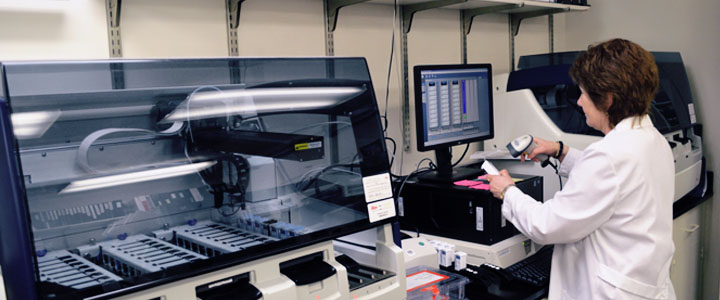What is Immunohistochemistry?
Immunohistochemistry is a testing technique used in histopathology for identifying the antigens in tissue sections by using certain antibodies. These antigens are visible in particular types of cells. This process is a special staining method which is mostly performed on fresh or frozen breast cancer tissue which is removed during the biopsy. This test is important to determine whether the tested cancer cells have HER2 receptors or not. It is the most common application of immunostaining. As it involves the use of antibodies in the procedure, the name precedes with “Immuno”.
What is the purpose of Immunochemistry?

The purpose of immunohistochemistry is to anatomically visualize the location of a specific protein or antigen in the cell by using a particular type of antibody. Generally, the pathologists employ this technique for diagnosing the cancers, specific types of tumours, and many other diseases.
How does the Immunohistochemistry test is performed?
Generally, the immunohistochemistry test includes four major steps:
- Fixation: For keeping everything on its proper place
- Antigen retrieval: For increasing the availability of protein for detection
- Blocking: For minimizing the pesky background signals
- Antibody Labeling and Visualization: Getting the images